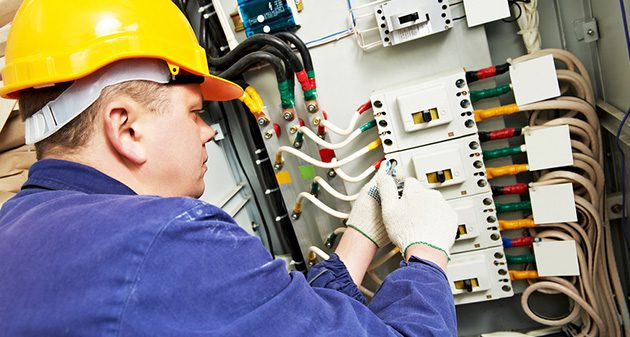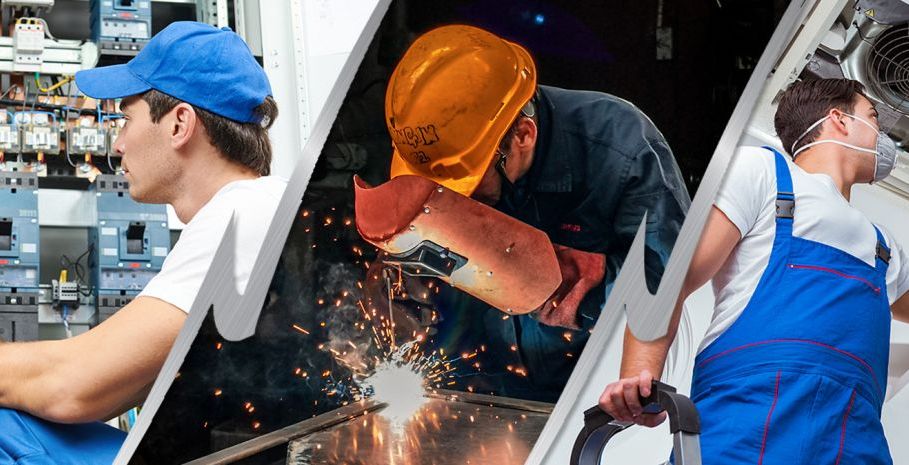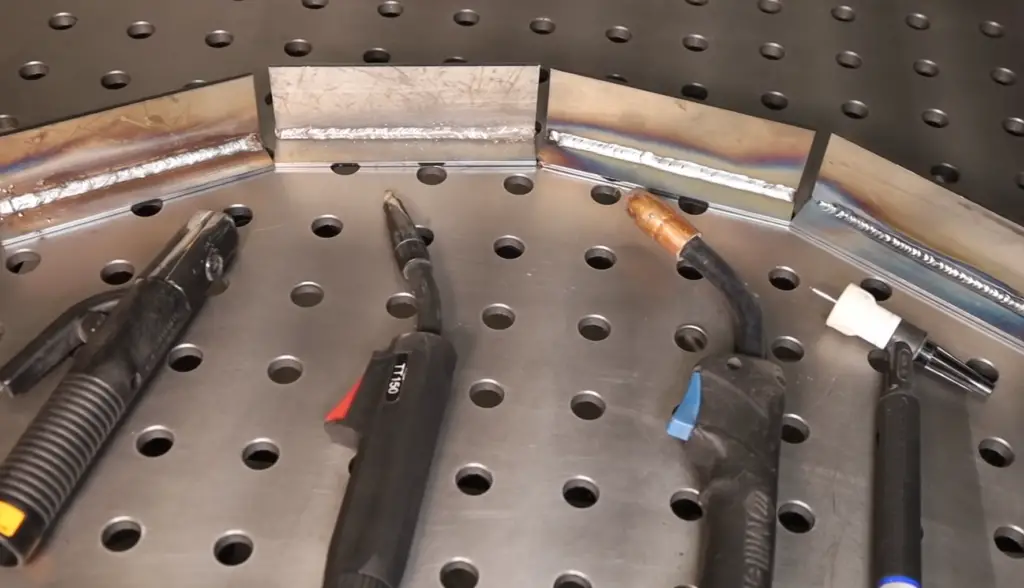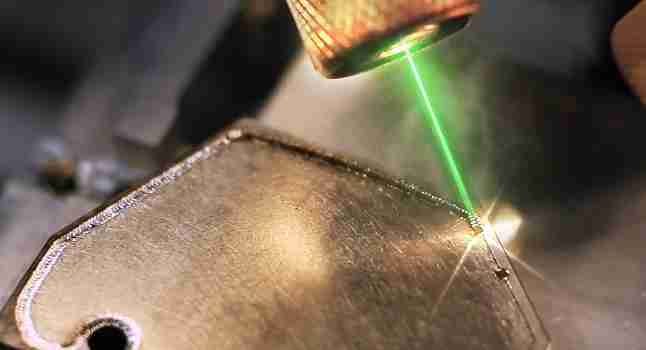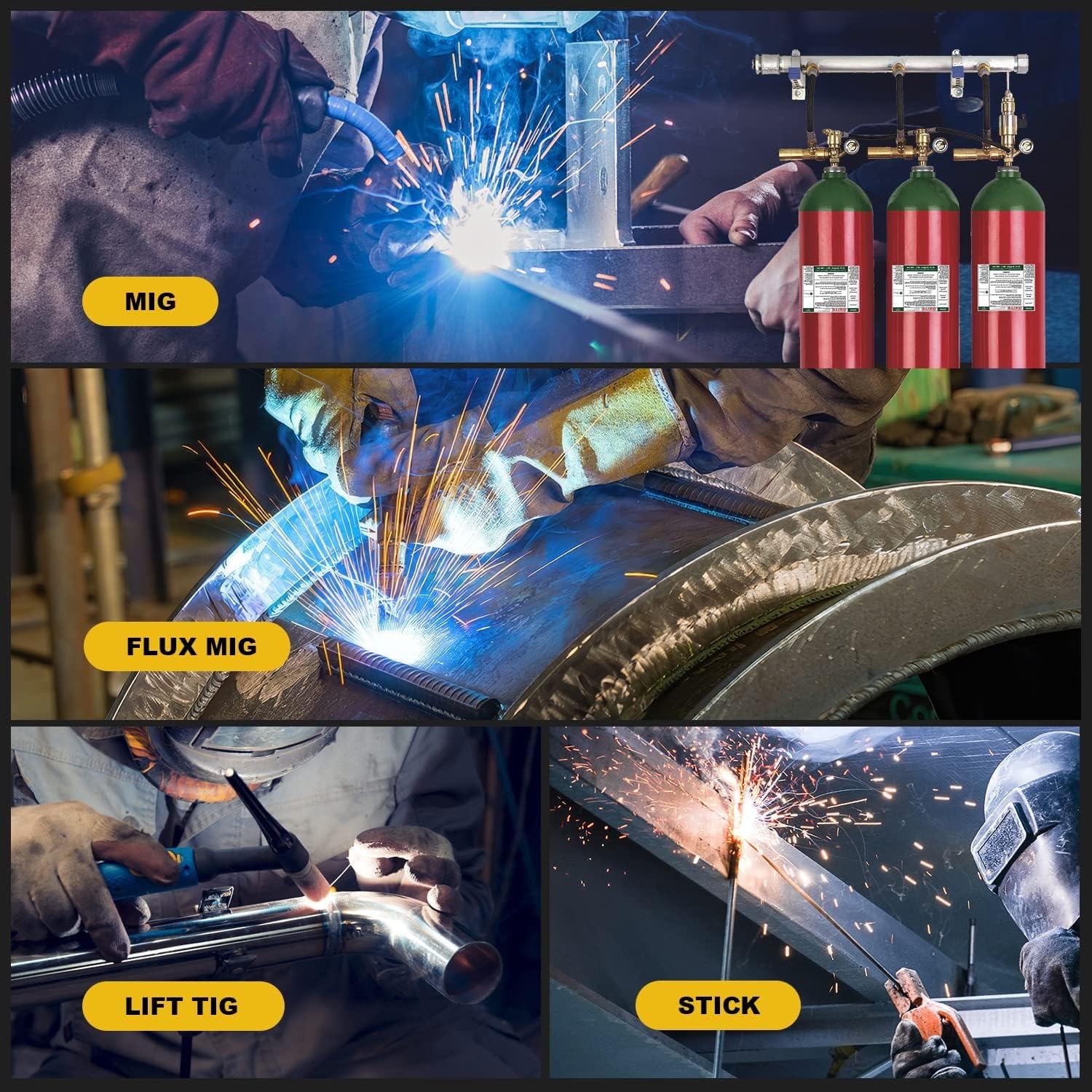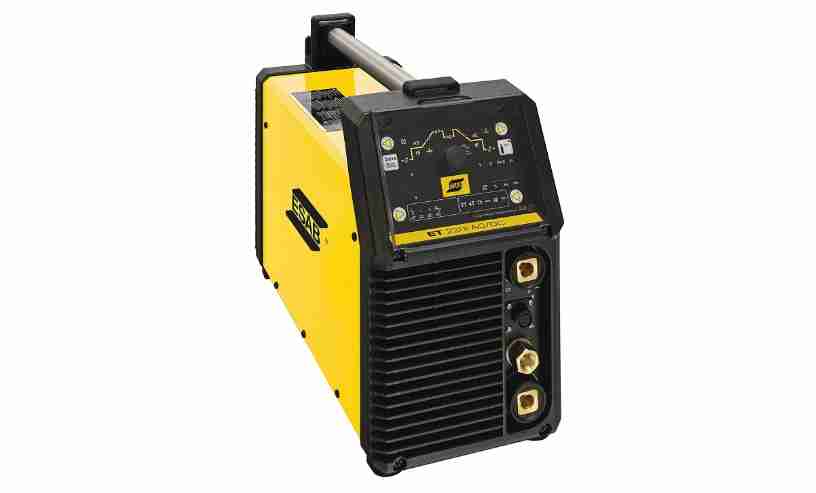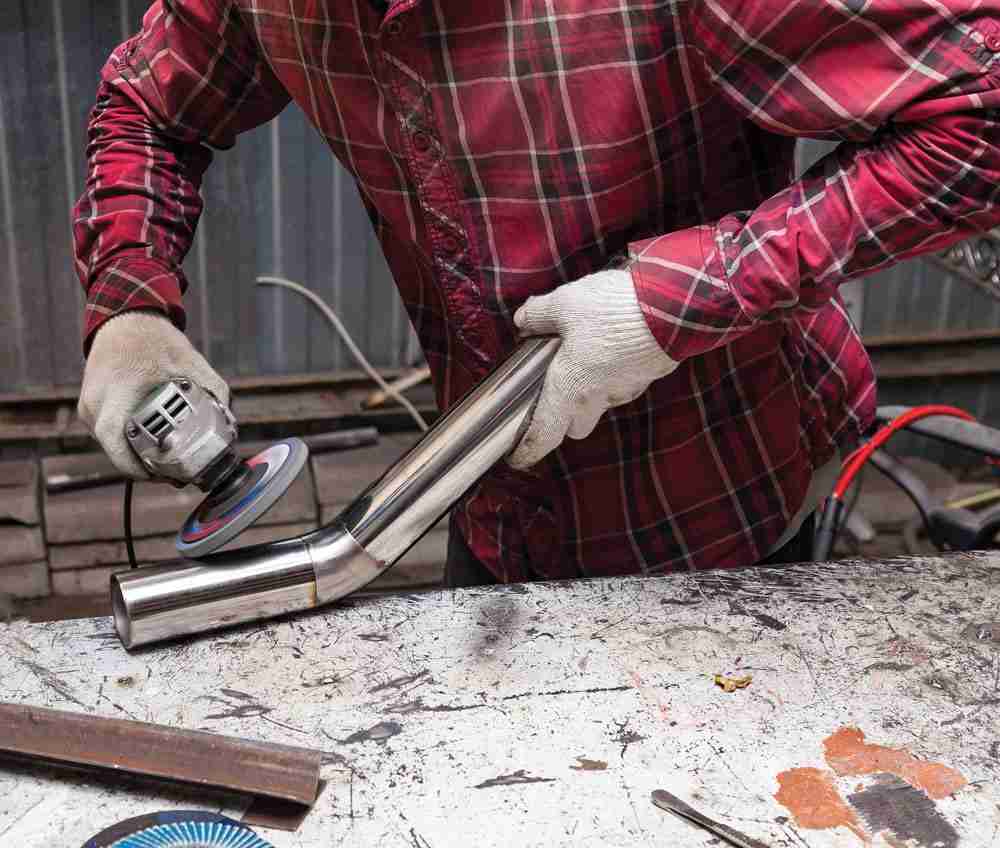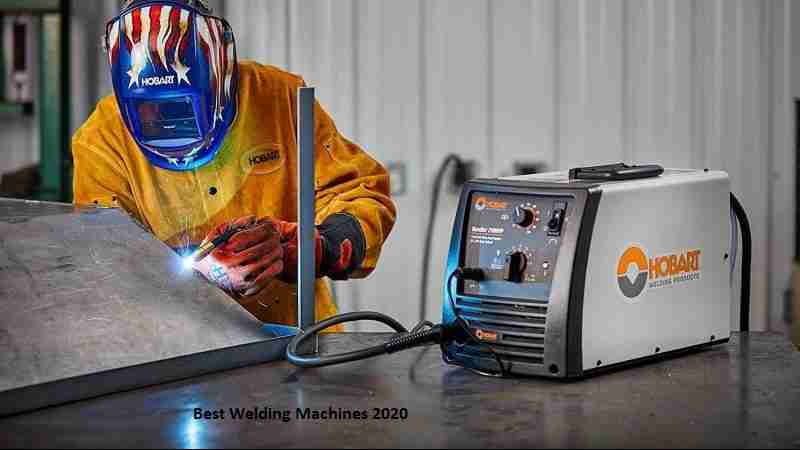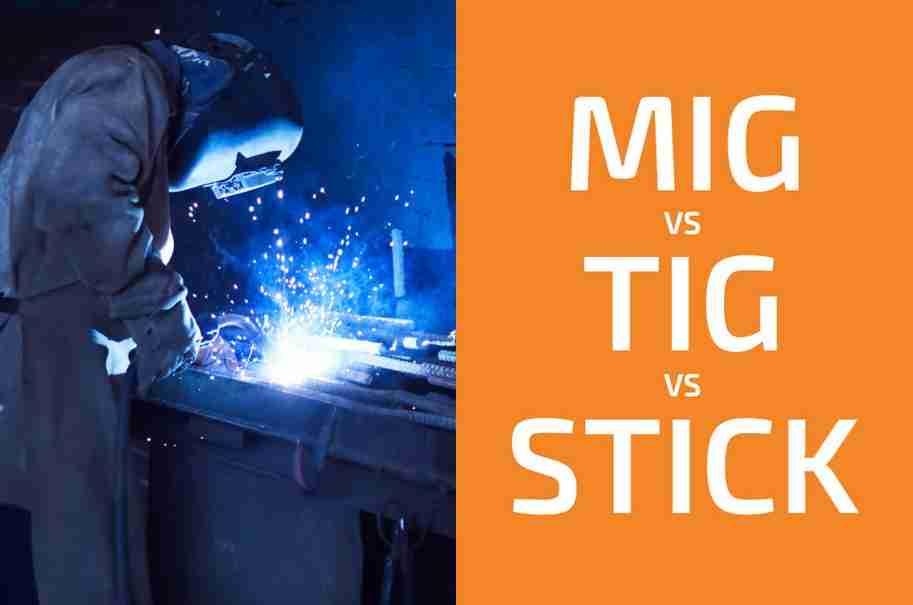So you’re curious about whether welding is harder than being an electrician? Well, look no further! In this article, we’ll explore the intricacies of these two trades and try to determine which one requires a greater level of skill and expertise. From the technical know-how to the physical demands, we’ll delve into the world of welding and electrical work to help you gain a better understanding of these professions. Whether you’re considering a career change or simply interested in learning more, read on to uncover the answer to the age-old question: Is welding harder than being an electrician?
Overview of Welding
Welding is a skilled trade that involves using heat and pressure to fuse materials together. It is commonly used in various industries such as construction, manufacturing, and automotive. Welding is essential for creating strong and durable connections between metal components.
Definition of Welding
Welding can be defined as the process of joining two or more materials, usually metals, by melting them together and allowing them to cool, thus creating a strong bond. This process requires a high level of precision and expertise.
Types of Welding Processes
There are several types of welding processes, each with its own advantages and applications. Some common types of welding processes include:
-
Arc welding: This is a popular welding process that uses an electric current to create an arc between an electrode and the workpiece, melting the metals and creating a weld.
-
MIG welding: Also known as Gas Metal Arc Welding (GMAW), it uses a continuous wire electrode and a shielding gas to create a weld.
-
TIG welding: Tungsten Inert Gas (TIG) welding utilizes a non-consumable tungsten electrode and an inert gas to create a clean and precise weld.
-
Spot welding: This process involves creating a series of welds at specific spots using electrical resistance.
Skills Required for Welding
To become a skilled welder, you need to possess certain skills, including:
-
Manual dexterity: Welding requires steady hands and precise movements to manipulate the welding equipment and produce accurate welds.
-
Knowledge of welding techniques: A welder should be familiar with different welding processes and their applications to choose the right technique for the task at hand.
-
Understanding of metal properties: Welders need to have knowledge of different metal types and their characteristics to ensure proper welding procedures and prevent material integrity issues.
-
Ability to read and interpret blueprints: Welders often work from technical drawings, so they should be able to understand and follow the specifications outlined in these blueprints.
Tools and Equipment Used
Welders rely on various tools and equipment to perform their job effectively. Some commonly used tools and equipment include:
-
Welding machine/power source: This is the primary equipment used for generating the heat needed to weld metals together.
-
Welding electrodes/wires: These consumable components are used to create an arc and deliver the necessary filler material for the weld.
-
Protective gear: Welders must wear safety equipment, including helmets, gloves, safety glasses, and flame-resistant clothing, to protect themselves from sparks, radiation, and other potential hazards.
Common Challenges in Welding
Welding can present some challenges that require skill and experience to overcome. Some common challenges faced by welders include:
-
Welding in difficult positions: Welders often have to work in cramped spaces or awkward positions, making it harder to maintain accuracy and weld quality.
-
Dealing with different metal compositions: Working with different types of metals and their various compositions may require adjustments in technique and settings to ensure a strong weld.
-
Ensuring proper weld strength and integrity: Achieving a high-quality weld requires precise control of heat and filler material to prevent defects and ensure that the weld possesses the desired strength and integrity.
Overview of Electrician
Definition of Electrician
An electrician is a skilled tradesperson specializing in electrical wiring, installation, and maintenance. The role of an electrician is crucial in both residential and commercial settings, ensuring the safe and efficient operation of electrical systems.
Types of Electrician
There are various types of electricians specializing in different areas of electrical work. Some common types of electricians include:
-
Residential electricians: These electricians primarily work in residential settings, handling tasks such as installing and repairing wiring, outlets, and fixtures in homes.
-
Commercial electricians: These electricians focus on electrical systems in commercial buildings, including offices, shopping centers, and industrial facilities.
-
Industrial electricians: Industrial electricians specialize in electrical systems used in manufacturing plants, factories, and other industrial settings.
Skills Required for Electrician
To be a successful electrician, certain skills are necessary. These skills include:
-
Technical knowledge: Electricians need a comprehensive understanding of electrical systems, circuits, and wiring to ensure safe installations and repairs.
-
Troubleshooting skills: Electricians must have the ability to diagnose and address electrical issues, identifying faults and devising effective solutions.
-
Strong attention to detail: Precise and accurate work is crucial in electrical installations to prevent safety hazards and ensure compliance with electrical codes.
-
Knowledge of electrical codes and regulations: Electricians must stay up-to-date with the latest electrical codes and regulations to ensure compliance and safe practices.
Tools and Equipment Used
Electricians rely on various tools and equipment to perform their duties efficiently. Some common tools and equipment used by electricians include:
-
Hand tools: Electricians use a range of hand tools such as pliers, wire strippers, screwdrivers, and wrenches for tasks like cutting wires, tightening connections, and fastening.
-
Power tools: Electricians utilize power tools like drills, saws, and conduit benders to cut through materials, install electrical components, and form conduits.
-
Testing equipment: Electricians use testing devices like multimeters and voltage testers to measure electrical currents, voltage, and resistance to ensure proper functioning and diagnose issues.
Common Challenges faced by Electricians
Electricians face specific challenges in their line of work. Some common challenges encountered by electricians include:
-
Working with live electricity: Electricians must take precautions when working with live electrical systems to prevent electrocution or other accidents.
-
Troubleshooting complex issues: Electrical problems might not always have obvious causes, and identifying and resolving them can be challenging and time-consuming.
-
Keeping up with technological advancements: The electrical field is continually evolving, with new technologies emerging. Electricians need to stay updated with these advancements to effectively work with modern electrical systems.
Differences in Skill Requirements
While both welding and electrician jobs require technical skills, there are some differences in the specific skill sets needed for each profession.
Technical Skills
Welders need proficiency in various welding techniques, such as arc welding, MIG welding, TIG welding, and spot welding. They must understand how to operate welding machines, adjust settings for different materials, and produce high-quality welds.
On the other hand, electricians require technical knowledge about electrical systems, including wiring, circuitry, and electrical codes. They must be skilled in installing, maintaining, and repairing electrical components, such as circuit breakers, outlets, and lighting fixtures.
Analytical Skills
Welders need to analyze materials and determine the appropriate welding techniques and procedures, taking into account factors such as metal composition, joint design, and weld positions.
Electricians also rely on analytical skills to troubleshoot electrical issues, identify faults in wiring, circuits, or electrical equipment, and develop effective solutions to ensure safety and proper functioning.
Problem-solving Skills
Both welders and electricians encounter various challenges that require problem-solving skills. Welders must find solutions for issues such as welding in tight spaces or dealing with different metal compositions, adjusting their techniques accordingly.
Electricians face challenges like diagnosing electrical malfunctions, locating faults, and resolving complex wiring issues. They must think critically and creatively to solve these problems and ensure electrical systems operate safely.
Attention to Detail
In welding, attention to detail is crucial to ensure precise measurements, accurate joint alignment, and appropriate welding settings for different materials. Inconsistent parameters or a lack of attention to detail can lead to weak welds or defects.
Similarly, electricians must pay close attention to detail when installing and connecting electrical components to avoid mistakes that could cause electrical hazards, power failures, or damage to electrical systems.
Mathematical Skills
Welders often need basic mathematical skills to interpret technical drawings, calculate measurements for precise weld placements, and determine dimensions for cutting and shaping materials.
Electricians also use mathematical skills to calculate electrical load requirements, measure wire lengths, and ensure proper electrical connections based on specifications outlined in electrical diagrams or blueprints.
Physical Demands
Both welding and electrician jobs require physical exertion and involve working in different environments.
Physical Endurance
Welders often work in physically demanding conditions, requiring them to stand, bend, or squat for extended periods. They may also need to carry heavy materials, weld components overhead, or work in challenging positions. Physical endurance is essential to withstand these demands.
Electricians may encounter physically demanding tasks as well, such as climbing ladders or being in awkward positions while installing electrical components. However, they might have more flexibility in choosing work positions compared to welders.
Strength and Stamina Requirements
Welding tasks may demand significant upper body strength, as welders need to hold and manipulate heavy welding equipment, welding materials, and tools. The ability to exert adequate force to create strong welds is crucial.
Electricians also require strength when handling electrical equipment, wiring, and conduit installation. While not as physically demanding as welding, electricians still need sufficient stamina to handle long work hours and physical tasks.
Potential Hazards
Welding involves exposure to heat, sparks, and potentially harmful fumes or gases released during the welding process. Adequate protection, such as wearing appropriate safety gear and ensuring proper ventilation, is crucial to prevent injuries or health hazards.
Electricians face potential electrical hazards, including the risk of electric shock, arc flash, or fires caused by faulty wiring or equipment. Adhering to safety protocols, using insulated tools, and following electrical codes mitigates these risks.
Work Postures and Positions
Welders often work in confined spaces, requiring them to adopt uncomfortable positions, such as crouching or kneeling. They may also have to weld overhead or in tight corners, necessitating increased physical strain and flexibility.
Electricians may work in various settings, including construction sites, buildings, or homes. While they may encounter tight spaces or strenuous positions during installations, they generally have more flexibility in adapting their work posture to the task at hand.
Educational Requirements
Both welding and electrician professions have educational pathways that provide the necessary knowledge and skills for entry into the respective trades.
Formal Education
Some welders pursue formal education through vocational training programs or community colleges. These programs offer courses in welding techniques, blueprint reading, metallurgy, and occupational safety. Completing a welding program can provide a solid foundation for a career in welding.
Electricians typically require formal education as well. Many aspiring electricians enroll in trade schools or community colleges to complete electrical training programs that cover electrical theories, mathematics, electrical code requirements, and hands-on practice. These programs may culminate in a certificate or diploma.
Apprenticeship Programs
Both welding and electrical professions often offer apprenticeship programs. These programs combine classroom instruction with on-the-job training, allowing learners to gain practical experience under the guidance of experienced professionals.
Welding apprenticeships typically involve working alongside seasoned welders, learning various welding techniques and building proficiency through hands-on work.
Electrician apprenticeships involve working under the supervision of licensed electricians. Apprentices gain practical experience in different electrical systems, installations, and repairs while attending related classroom instruction.
Certifications and Licenses
Some welders choose to pursue certifications to enhance their qualifications and demonstrate their proficiency in specific welding processes or specialties. Organizations such as the American Welding Society (AWS) offer various certifications based on different welding processes, positions, or materials.
Electricians often require licenses or certifications to work in specific geographic locations. Licensing requirements vary by state or country and typically involve passing an exam that assesses electrical knowledge and adherence to electrical codes. Electricians may also pursue additional certifications to boost their credentials, such as becoming a journeyman electrician or a master electrician.
Safety Concerns
Both welding and electrical work have inherent safety risks, and prioritizing safety is crucial in both professions.
Occupational Hazards in Welding
Welders face several occupational hazards, such as:
-
Fumes and gases: Welding generates fumes and gases, including hazardous substances like metal oxides or toxic gases. Prolonged exposure without proper ventilation or adequate protection may lead to respiratory problems or long-term health issues.
-
Arc flash: Welding arcs emit intense ultraviolet (UV) radiation, which can cause skin burns and eye damage if not adequately protected by appropriate welding helmets and protective clothing.
-
Electrocution: Welders working in wet or conductive environments may face the risk of electric shock from faulty equipment, improper grounding, or accidental contact with live electrical parts.
Electrical Hazards in Electrician work
Electricians encounter specific electrical hazards, including:
-
Electric shock: The risk of electric shock exists when working with live electrical circuits, faulty wiring, or improper grounding. Proper safety precautions, such as de-energizing circuits and wearing insulated gloves, mitigate this risk.
-
Arc flash and Arc blast: An arc flash is a release of energy caused by an electric arc that can cause severe burns, shrapnel, or other types of injuries. Proper Personal Protective Equipment (PPE) and adherence to safety protocols help prevent arc flash incidents.
-
Electrical fires: Incorrect wiring, overloaded circuits, or faulty electrical components can lead to electrical fires. Electricians must follow electrical code requirements and use fire-resistant materials to reduce fire risks.
Protective Measures Taken
Both welders and electricians take precautions to protect themselves from hazards in their respective trades. Some common protective measures include:
-
Personal protective equipment (PPE): Welders and electricians wear appropriate safety gear, including helmets, gloves, safety glasses/goggles, and flame-resistant clothing, to shield themselves from potential hazards.
-
Training and safety protocols: Both professions emphasize safety training to ensure workers are aware of potential risks and understand procedures to minimize them. Following safety protocols reduces the possibility of accidents.
-
Proper ventilation: Welders work in well-ventilated areas or use welding booths with local exhaust ventilation systems to remove welding fumes and maintain air quality.
-
Lockout/tagout procedures: Electricians adhere to lockout/tagout protocols when working on electrical systems to ensure circuits are properly de-energized and avoid accidental activation.
Job Opportunities
Both welding and electrician trades offer diverse job opportunities across various industries.
Types of Jobs Available for Welders
Welders can find employment in various sectors, such as:
-
Construction and infrastructure: Welders are essential in building structures, bridges, pipelines, and other infrastructure projects that require strong and durable connections.
-
Manufacturing: Welding is crucial in manufacturing industries, including automotive, aerospace, shipbuilding, and machinery production, where welding is necessary for fabricating metal components.
-
Energy and oil sectors: Welders play a vital role in the energy industry, working on projects related to renewable energy, power generation, and oil and gas infrastructure.
Types of Jobs Available for Electricians
Electricians have diverse job opportunities in different sectors, including:
-
Residential electricians: Residential electricians work on electrical installations, such as wiring, outlets, lighting fixtures, and circuit troubleshooting in homes and apartment buildings.
-
Commercial electricians: Commercial electricians handle electrical systems in commercial buildings, including offices, retail stores, hospitals, and schools.
-
Industrial electricians: Industrial electricians work in manufacturing plants and industrial facilities, maintaining and repairing electrical systems used in machinery, equipment, and automated processes.
Industry Demand
The demand for both welders and electricians remains steady due to the continual need for construction, maintenance, and infrastructure development.
Welders are in demand in industries experiencing growth, such as renewable energy, including wind and solar power, as well as infrastructure expansion projects. The manufacturing sector also requires skilled welders to meet production needs.
Electricians benefit from the constant demand for electrical work in various sectors. As technology continues to advance, electricians with expertise in automation, renewable energy systems, or smart home technologies are expected to be in high demand.
Salary and Earning Potential
The salaries of welders and electricians can vary depending on factors such as experience, location, industry, and specialization.
Average Salaries for Welders
The average salaries for welders can range from approximately $40,000 to $70,000 per year. Entry-level welders or those without extensive experience typically earn at the lower end of the salary range, while highly skilled welders working in specialized fields or with significant experience can earn higher salaries.
Average Salaries for Electricians
Electricians generally have higher earning potential compared to welders. The average salary for electricians can range from around $50,000 to $90,000 per year. Factors such as location, experience, specialization, and the type of electrical work performed can influence salary levels.
Factors Affecting Earning Potential
Several factors influence the earning potential of both welders and electricians, including:
-
Experience: With increasing experience and expertise, welders and electricians can command higher salaries based on their skill level and industry demand for their services.
-
Specialization: Specializing in specific types of welding or electrical work, such as pipe welding or industrial electrical systems, can often result in higher salaries due to the specialized knowledge and demand for those skills.
-
Location: Salaries can vary based on the cost of living and demand for skilled trades in different regions. Metropolitan areas or regions experiencing robust construction or industrial growth may offer higher salaries.
-
Industry: Certain industries, such as oil and gas or renewable energy, may offer higher salaries due to the specific skills and demands associated with those sectors.
Work Environment
Both welders and electricians work in diverse environments, depending on the type of projects and industries they are involved in.
Welders may work in various locations, including:
-
Construction sites: Welders in construction work on buildings, infrastructure projects, or onsite welding for repairs or modifications.
-
Manufacturing facilities: Welders in manufacturing work in production facilities, fabricating metal components, or conducting repairs on machinery or equipment.
-
Outdoor environments: Some welding work, such as pipeline welding or infrastructure repairs, may require working outdoors in different weather conditions.
Electricians work in various settings, including:
-
Construction sites: Electricians are involved in new construction projects, where they install electrical systems, wiring, and circuitry based on building plans.
-
Maintenance and repairs: Electricians may perform routine maintenance or repairs on existing electrical systems in commercial or residential buildings.
-
Industrial facilities: Industrial electricians work in factories, power plants, or manufacturing facilities, maintaining and troubleshooting industrial electrical systems and machinery.
Job Outlook
The job outlook for both welders and electricians is generally positive, driven by ongoing construction projects, infrastructure development, and advancements in technology.
Demand for Welding Jobs
Welding jobs are projected to have steady demand, with opportunities available in construction, manufacturing, and infrastructure sectors. The need for skilled welders is also growing in renewable energy industries, such as wind and solar power.
Demand for Electrician Jobs
The demand for electricians is expected to increase in the coming years due to various factors, including the need for new construction, infrastructure upgrades, and technological advancements. The growth in renewable energy sources and the increasing demand for efficient electrical systems in residential and commercial settings contribute to the positive outlook for electrician jobs.
Job Growth Projections
According to the U.S. Bureau of Labor Statistics (BLS), employment of welders, cutters, solderers, and brazers is expected to grow 3% from 2020 to 2030, slightly slower than the average growth for all occupations. However, demand for welders may vary depending on the specific industry and regional factors.
For electricians, the BLS projects a 8% growth in employment from 2020 to 2030, which is faster than the average for all occupations. The need for electricians to maintain and upgrade existing electrical systems, coupled with the growth of renewable energy technologies, contributes to this positive job growth projection.
In conclusion, while both welding and electrician professions have their own unique skill sets, physical demands, and career opportunities, they each play crucial roles in various industries. Welding requires precision, knowledge of welding processes, and the ability to work with different metals, whereas electricians must possess strong electrical knowledge, troubleshooting skills, and be familiar with electrical codes and regulations. Both professions offer stable job opportunities, attractive earning potential, and a positive job outlook for skilled individuals. The choice between welding and electrician ultimately comes down to personal interests, aptitude, and career goals.





